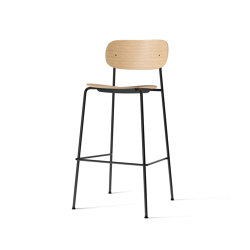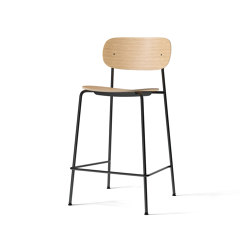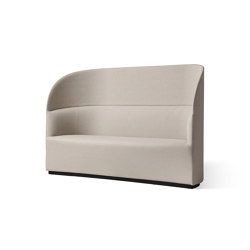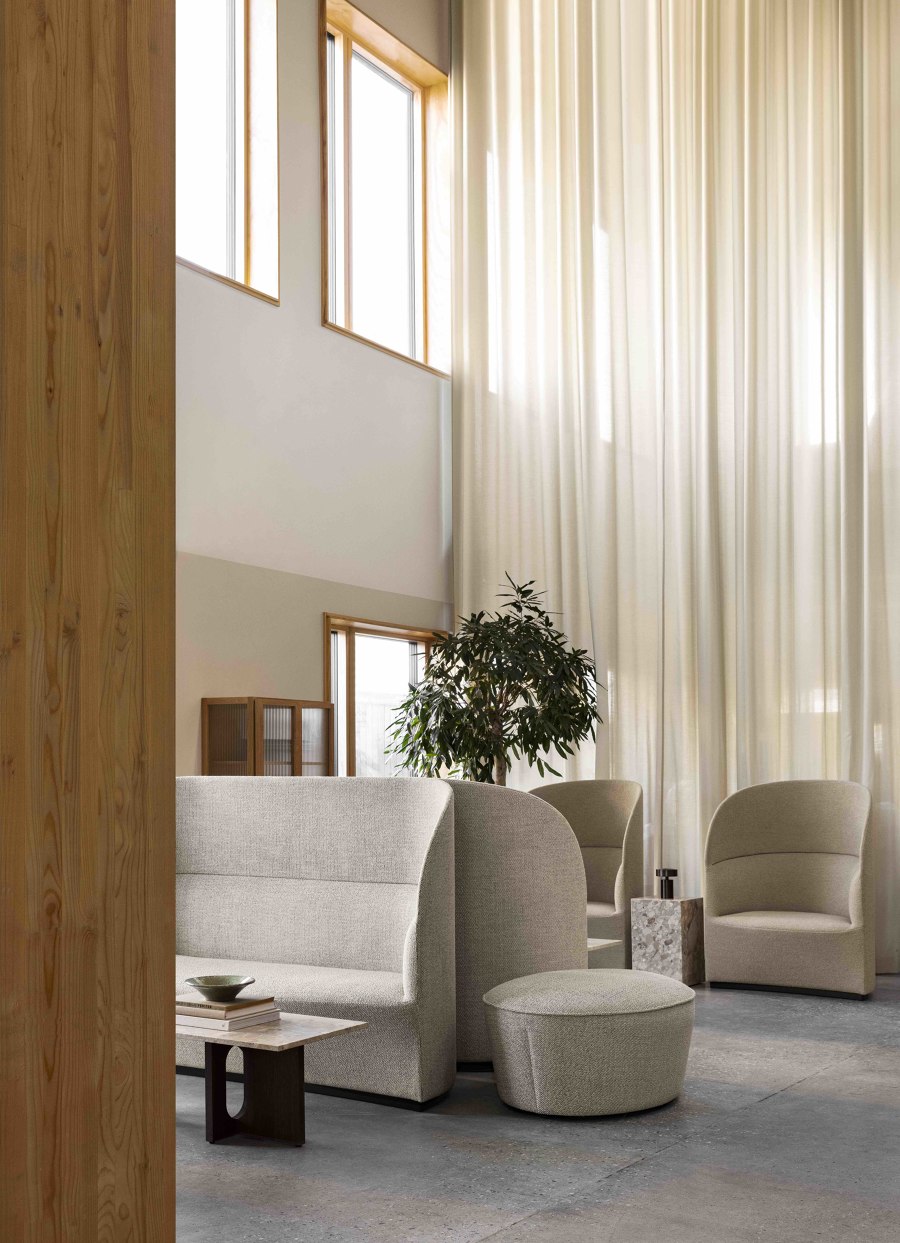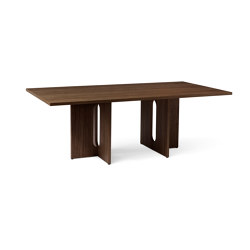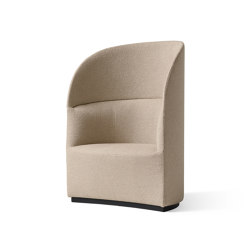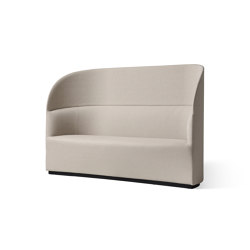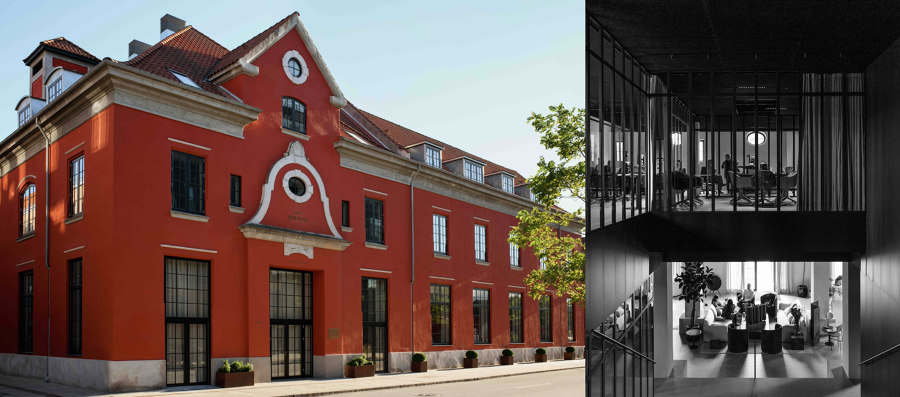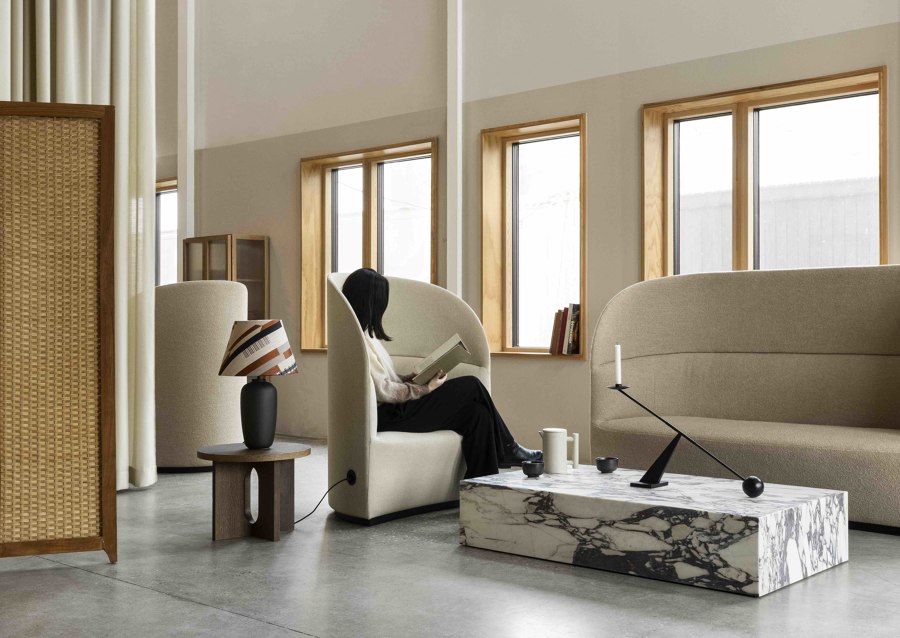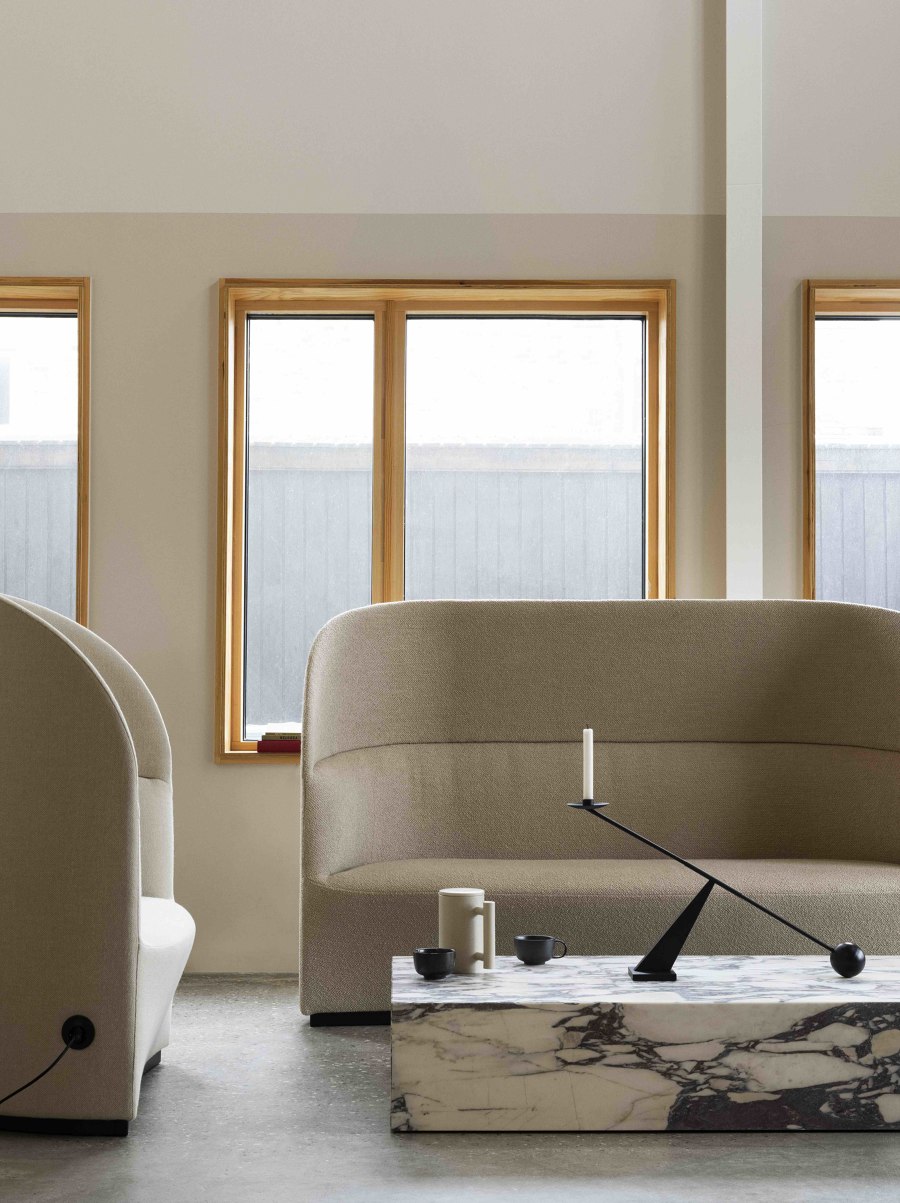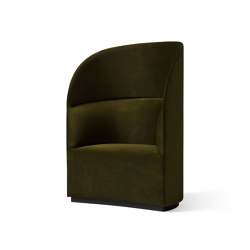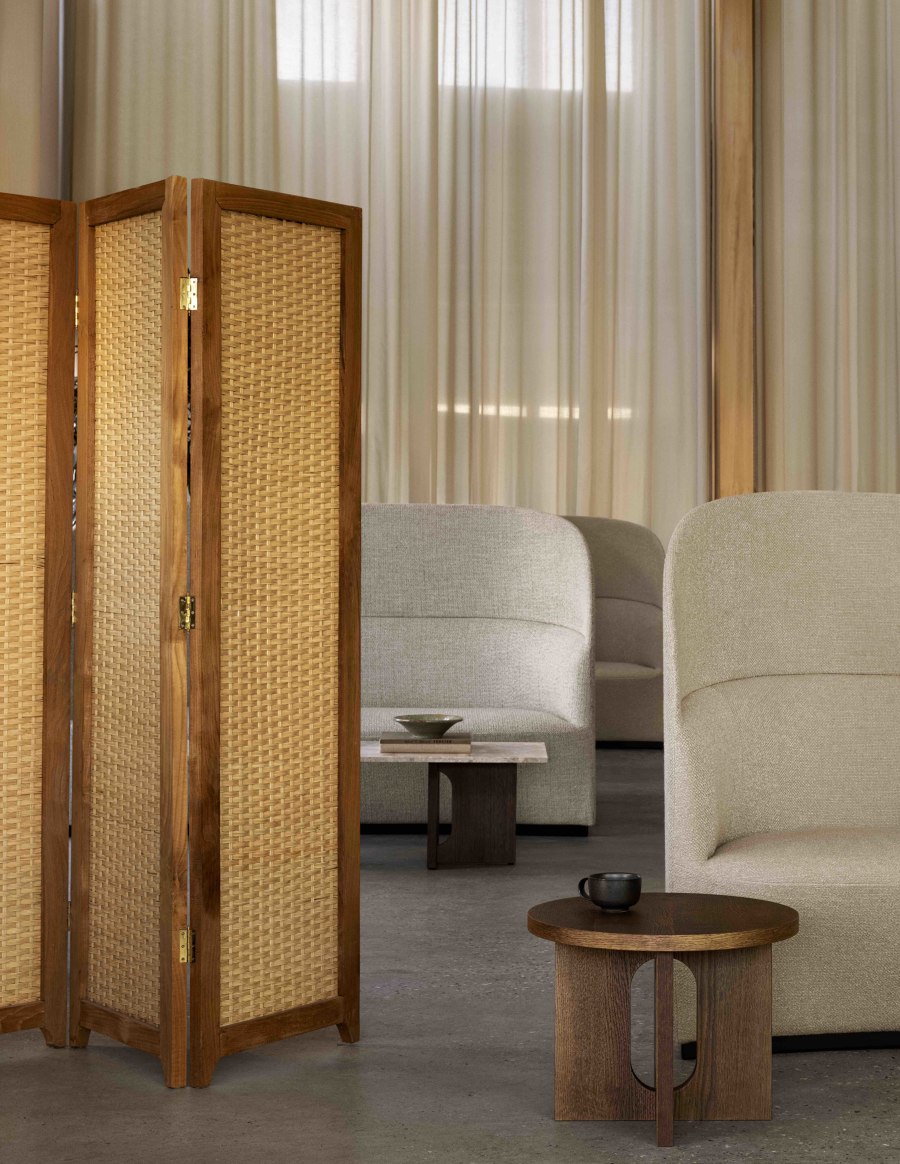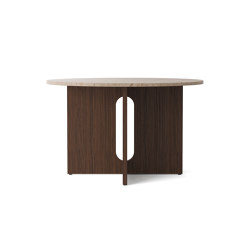Social revolution is on the MENU
Brand story by Harriet Thorpe
Nordhavn, Denmark
05.05.22
As product design that tracks the movements of changing social space landscapes, MENU's multi-use Tearoom and Co Chair collection serve up shared interactions and flexible functionality for multiple users.
Danish design brand MENU’s latest furniture launches: the new Co Bar and Counter chairs, and the Tearoom High Back sofa
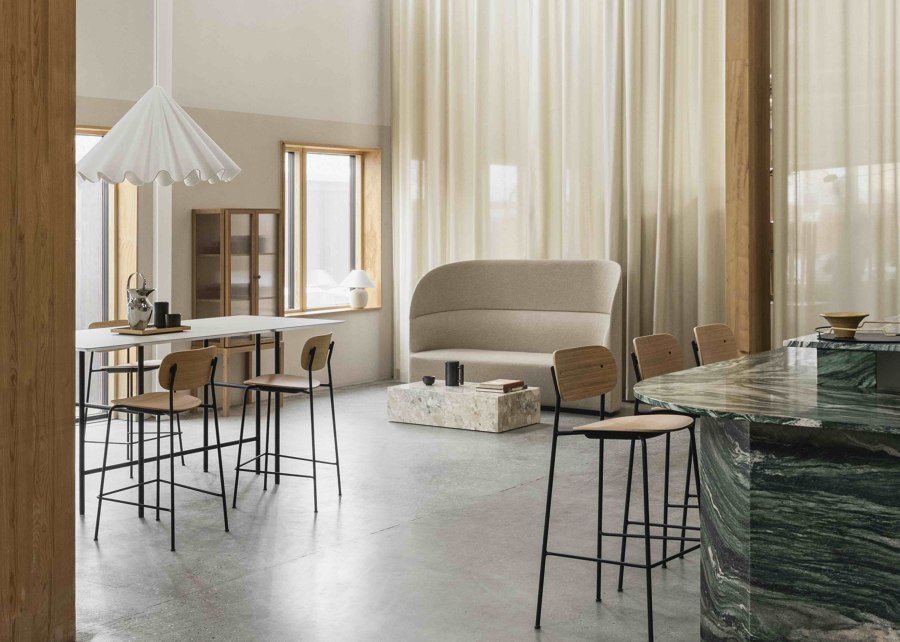
Danish design brand MENU’s latest furniture launches: the new Co Bar and Counter chairs, and the Tearoom High Back sofa
×Challenging social spaces to properly reflect our modern existence should be an important quest for all designers – the power of progressive interiors should not be underestimated, and can even contribute to a change in the course of history. Danish design brand MENU is driven by a human-centric approach rooted in social agency – with the end result of each product design being to forge a sense of community and belonging in the real world.
Cocooned shapes of the Tearoom collection offer privacy in public (above); while the Co Bar Chair offers an informal, yet comfortable perch for any occasion
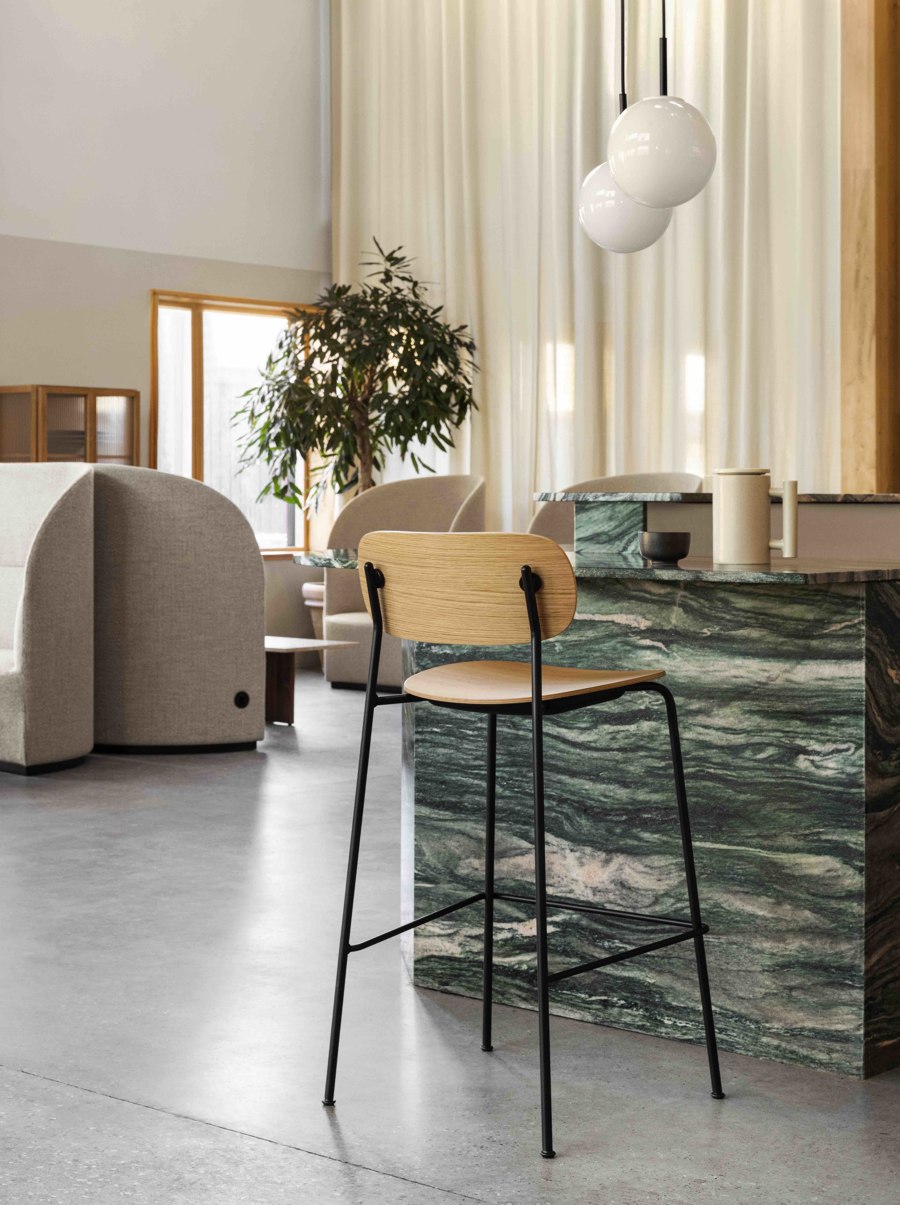
Cocooned shapes of the Tearoom collection offer privacy in public (above); while the Co Bar Chair offers an informal, yet comfortable perch for any occasion
×With every furniture, lighting and interior accessory, MENU looks for how a product can truly connect an individual to a space. This is achieved through softly minimal products that are both versatile and accessible, and their collaborative team spirit which combines a wide range of experience and expertise. Plus, MENU's experiential showroom and concept hotel in Copenhagen, The Audo, forms an ideal social testbed from which their designers can learn, with its hybrid, open-plan layout reflecting that of many modern hotels, restaurants, workspaces and homes.
Pictured here, The Audo is a hybrid social space – a boutique residence, restaurant, café, concept shop, material library, work and event space – in Copenhagen, conceived and designed by MENU as a creative space and testbed for ideas
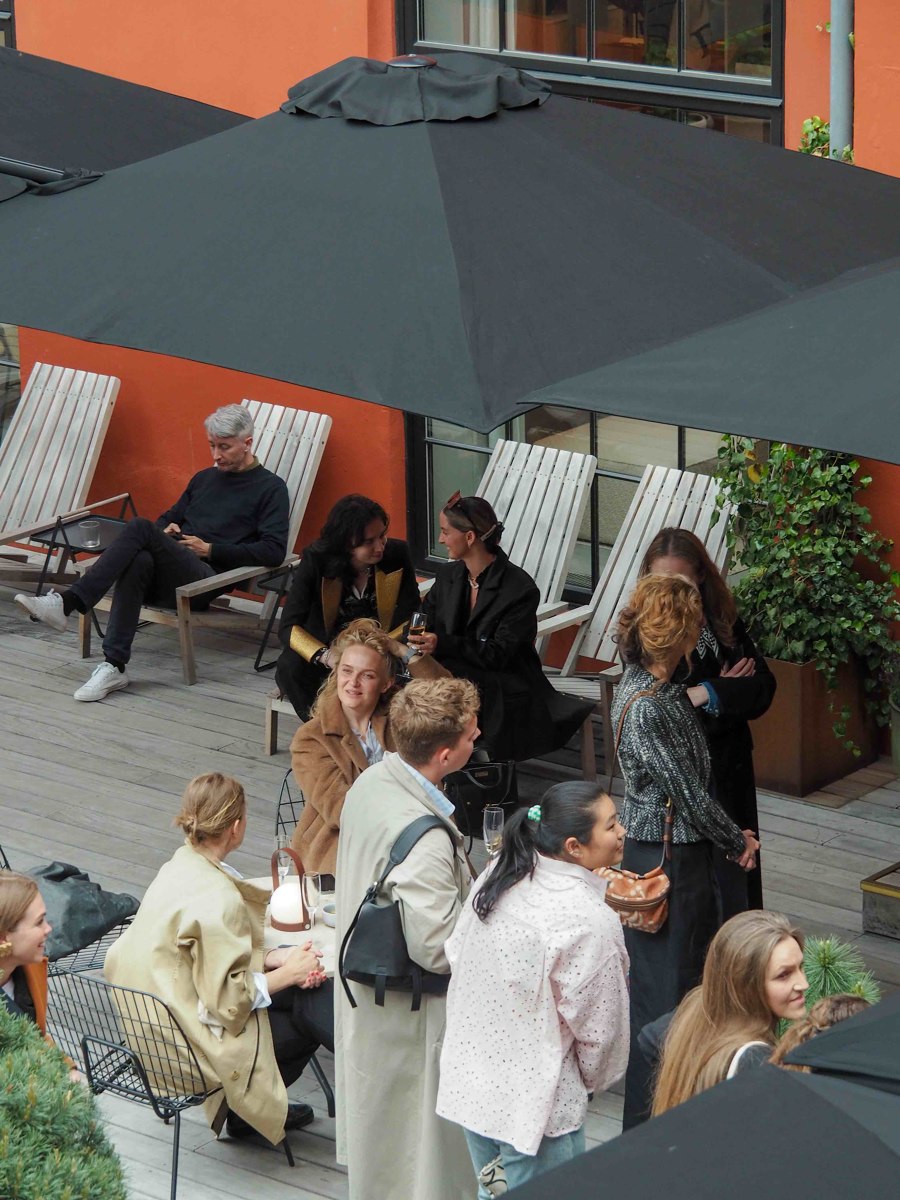
Pictured here, The Audo is a hybrid social space – a boutique residence, restaurant, café, concept shop, material library, work and event space – in Copenhagen, conceived and designed by MENU as a creative space and testbed for ideas
×Soft power
Central to our existence as humans, our social spaces are always evolving. In early 20th century Britain for example, the novel ‘tearoom’ was one of the first places where women could congregate without drinking alcohol, opening up new conversations that contributed to political change for women later in the century. This social space inspired MENU’s Tearoom collection of chairs, by Scottish-Swedish, Stockholm-based designer Nick Ross, who was informed in particular by Charles Rennie Mackintosh’s curved Willow Chair, created between 1902 and 1904 for the Willow Tea Rooms in Glasgow.
The high back sofas and chairs of the Tearoom collection create moments of privacy and help to divide an open plan space
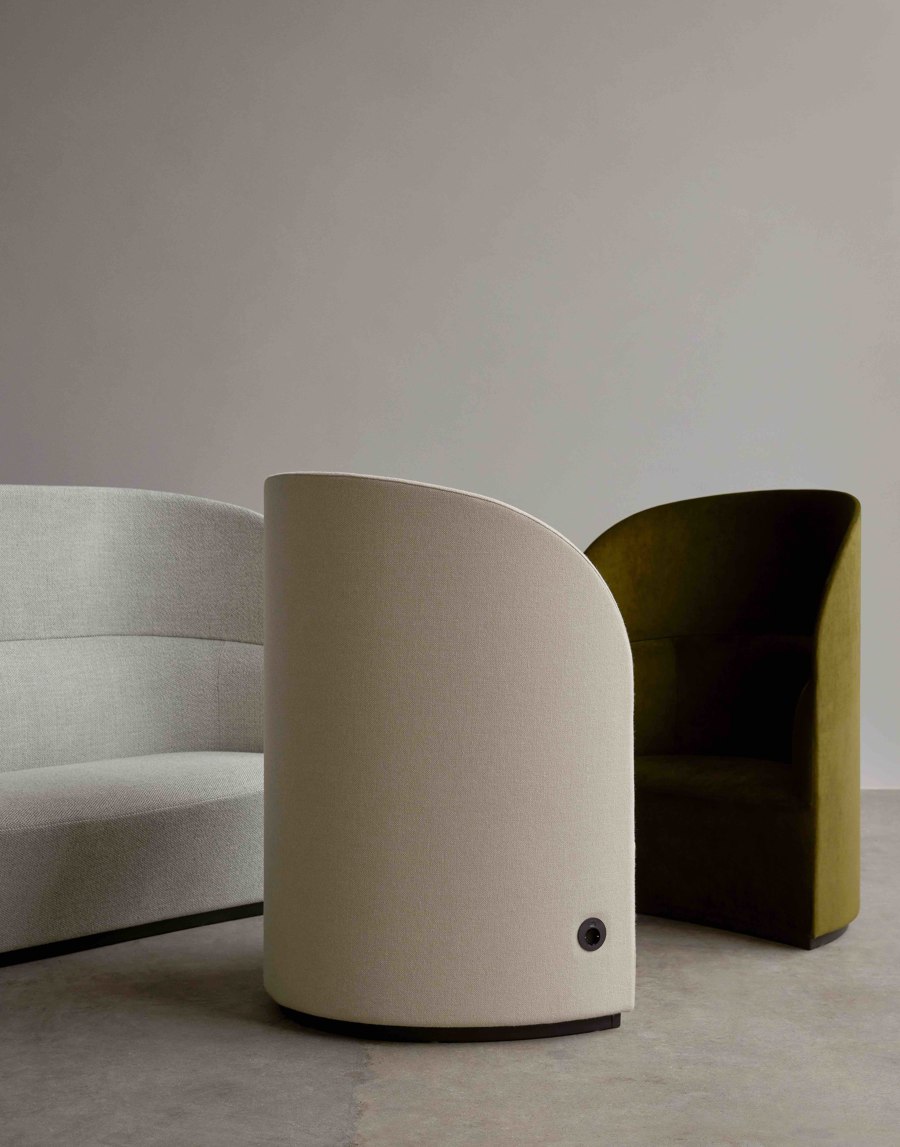
The high back sofas and chairs of the Tearoom collection create moments of privacy and help to divide an open plan space
×Applying this innovative historical precedent to the modern hybrid spaces of today, such as hotel lobbies or co-working spaces, Ross crafted a simple, rounded chair, with full upholstery providing sturdiness, comfort and absolute flexibility. 'The Tearoom chair has no direction – its round form makes it good for spaces similar to The Audo that are open-plan, because it can be placed anywhere and always feels at home,' says Joachim Kornbek Hansen, brand and design director at MENU.
The Tearoom family has now been extended with a high back variant, in both sofa and chair forms, with the option of a USB port and power socket at its base. 'The new high back responds to the need within these large spaces to create more intimate shelter with furniture – it creates a room within a room,' says Kornbek Hansen. 'Its sculptural aesthetic is ideal for workspaces that are trying to soften up, and become more inviting, which is the tendency at the moment.'
The Tearoom lounge chair with high back, pictured here with the Androgyne side table and the Strandgade stem vase
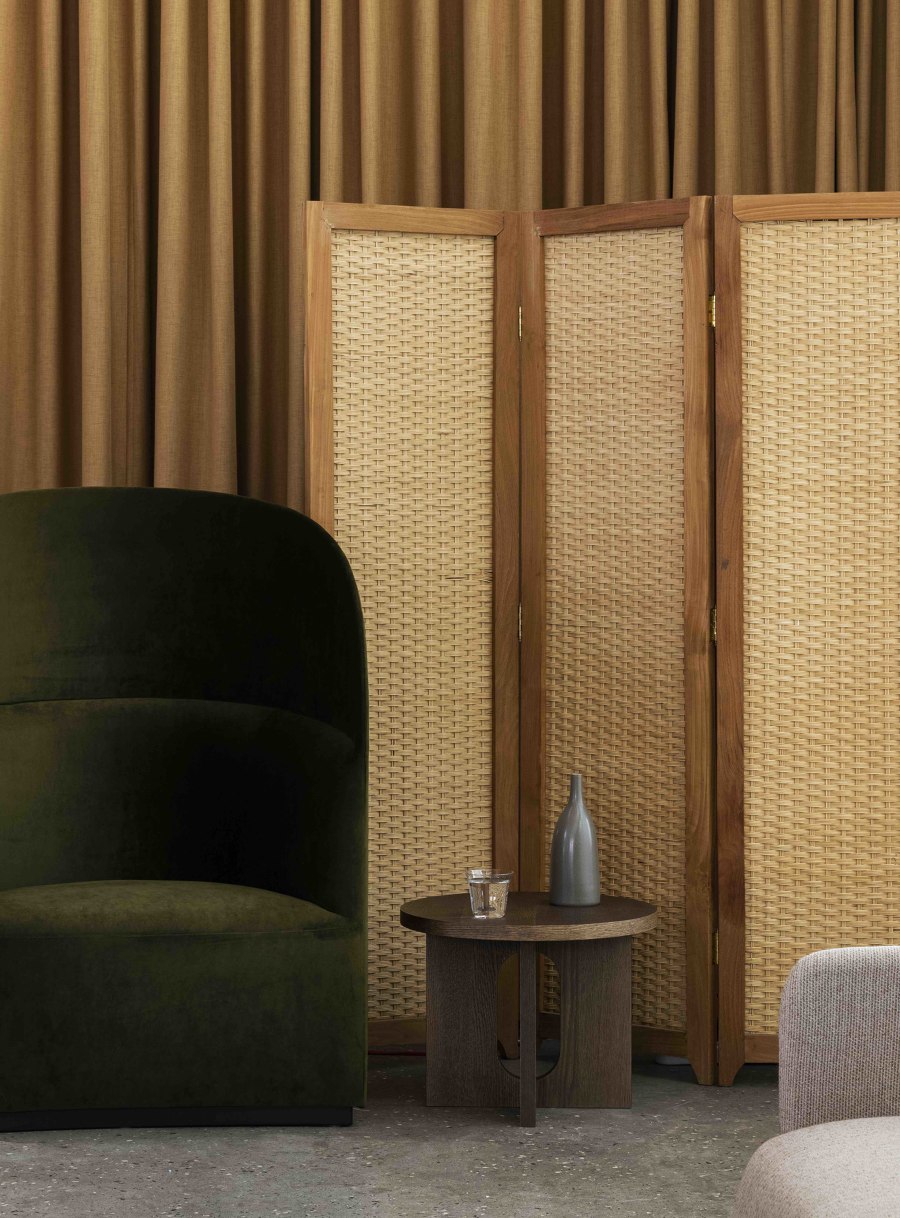
The Tearoom lounge chair with high back, pictured here with the Androgyne side table and the Strandgade stem vase
×Co-operative design
Another challenge is that these hybrid spaces must be shared by everyone – so seating must respond to a wide range of needs, and be accessible and comfortable to all. MENU’s Co Chair collection, designed by Norm Architects and Els Van Hoorebeeck formerly of The Office Group, responds to this, embracing the 'co' prefix that we have become accustomed to today such as co-working and co-living, meaning together, mutually and in common. It is a minimalist, multifunctional and customisable family of chairs designed to suit many types of interior settings from public to private, with the newly launched Co Bar Chairs and the Co Counter Chairs being ideal for restaurants and bars.
The Co counter chair, pictured here with the Snaregade counter table, the Curiosity cabinet, and the Hashira pendant cluster
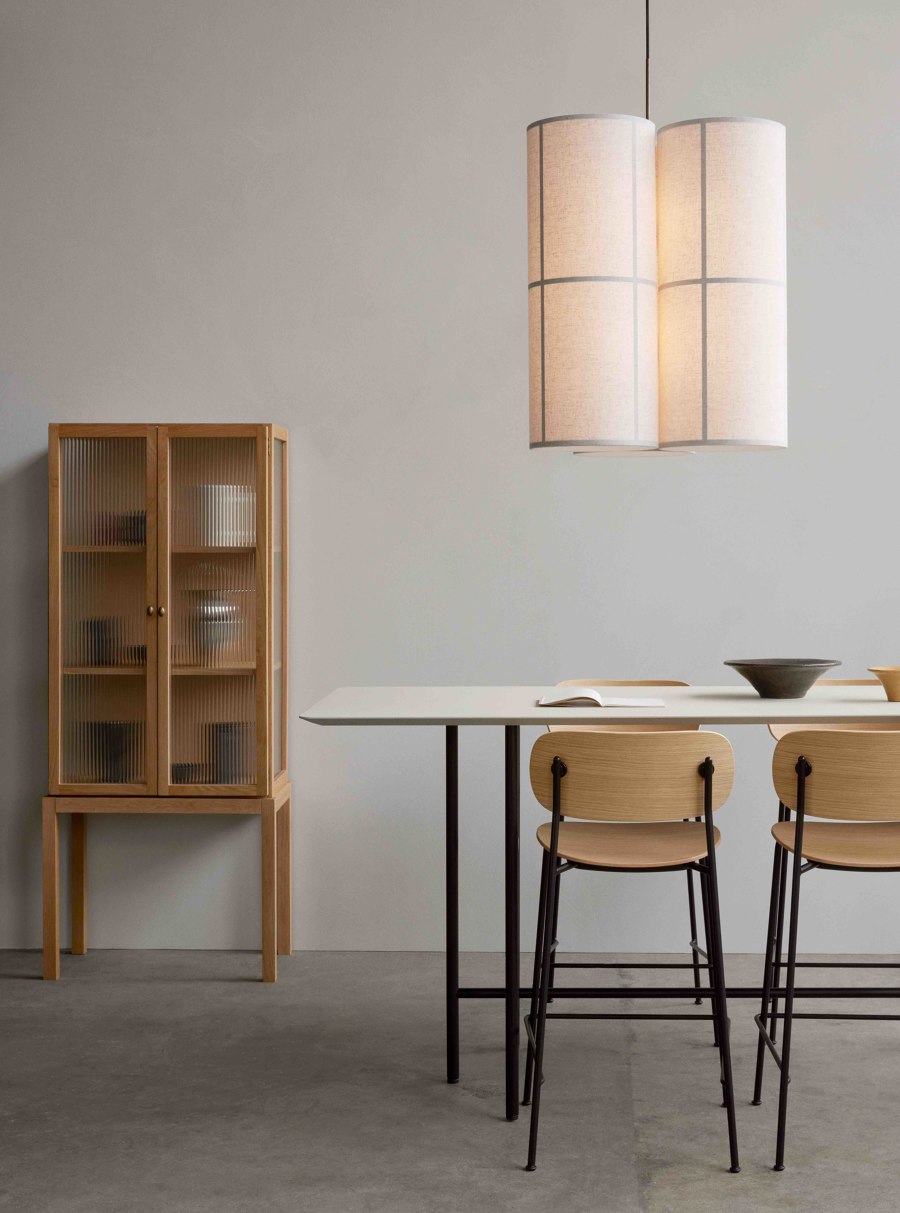
The Co counter chair, pictured here with the Snaregade counter table, the Curiosity cabinet, and the Hashira pendant cluster
×With a wide back and generous seat, set on a slender yet sturdy tubular steel frame, the Co Chair design combines minimalism and warmth to create the widest appeal possible. 'The Co Chair is both human-centric and practical for contract standards of strength, durability and stacking. It taps into the need for eclectic and design-minded co-working communities, where no-one should feel put in a box, and they can be their own vibrant and fluid selves.'
'If people don’t interact well with the design, what is it worth?' asks Kornbek Hansen. 'Today products can be designed so easily digitally as an aesthetic exercise rather than with the human as the central focus to the success of the design.' MENU‘s ‘soft minimalism’, seen in the Tearoom and Co Chair collections, seeks to find a universal approach to the comfortable and convivial social space of today. 'Feeling welcome and attracted to a space is a very subjective thing, but we want a design to feel accessible for everyone to interact with.'
© Architonic


